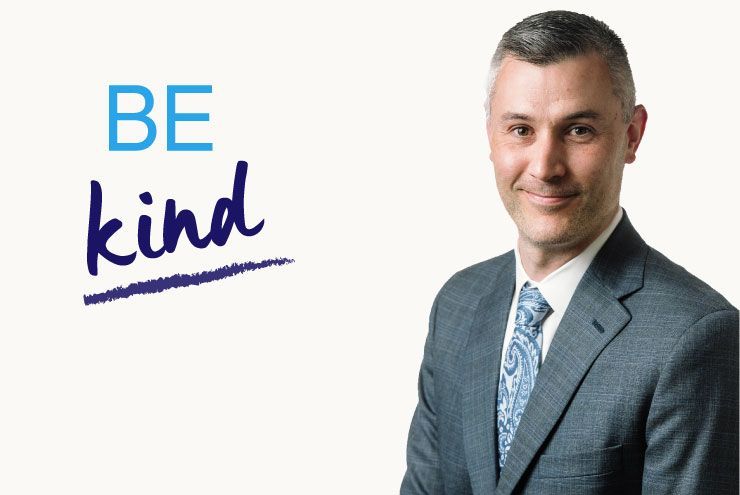By Kelly M. Marshall
The Kind Clinic is a new force in Austin, Texas. I was informed of their existence and services when my general provider, a private practice MD who has some experience in gender care, mentioned them during our conversation on PrEP. I asked her how much the prescription would cost out-of-pocket, she pulled the information up on her laptop, and we both leaned over her desk in dismay.
“$1,300.00? A month?!” I was flabbergasted. For a pill that prevents the transmission of HIV, this seemed like a special kind of extortion of a high-risk and stigmatized population. Systemic oppression at its finest.
She shrugged. “It’s lower than it used to be.”
“How long until they lower the cost to where it’s accessible?” I asked.
Her brow furrowed. “Probably 10 more years or so.” Then, she brightened. “You can go to the Kind Clinic. It’s accessible at no cost to patients there. I think they also have gender care.”
I signed up for the Kind Clinic’s ongoing gender care and was on a waiting list for three months. I’ve already been on testosterone for almost four years, but the idea of only having to pay for my prescription (labs and exams are no cost) was a welcome relief. Gender transition is not cheap. Because of the systemic gate-keeping, I’d say that trans folks have to see a doctor at least four times more than anyone else. Maybe even more.
When I finally visited the Clinic, I was amazed by how warm and kind the staff, doctors, and technicians were. They made gender care and PrEP access easy and stress-free. They were very respectful, and even solicitous, of my needs as a trans person. It’s an interesting sensation to now look forward to seeing the doctor. In my mind, the Kind Clinic sets the model for competent healthcare for trans folks.
I was fortunate enough to sit down with the Kind Clinic’s CEO, Christopher Hamilton, to discuss the Clinic, its offerings, and its vision for the future of trans-inclusive healthcare.
Kelly M. Marshall: Tell us about the inception of the Kind Clinic. What did you envision for the Clinic and how were you able to bring that vision to life?
Christopher Hamilton: Kind Clinic was created to respond to the needs of our community. PrEP had already been approved by the FDA for HIV prevention in 2012, but not a lot of people were talking about it and very few doctors in Austin were prescribing it. We finally had a tool to end new HIV transmissions, but it was still out of reach for some of those most susceptible to the virus. What started as a navigation program, linking patients to PrEP providers, quickly became more in 2015 when Dr. Cynthia Brinson donated her research facility to serve as a fully-functional clinic to help people overcome barriers to accessing PrEP.
Today, we have our own stand-alone clinic, and we provide no cost PrEP and PEP, STI testing and treatment, medical and support services for people living with HIV, and gender–affirming care to more than 3,000 patients. It all started with the passion of committed volunteers and the desire to respond to the needs of the community.
How does the Kind Clinic differ from other clinics that cater to HIV prevention and gender care in the South?
Stigma is not unique to the South, but it seems different here. Stigma can stem from being part of the LGBTQ community, being seen accessing services related to HIV, living with HIV/AIDS, engaging in sex, or just being in a small town where everyone knows your business. Kind Clinic takes a sex–positive approach—we lean into it. Yes, let’s talk about sex, how you like it, how you approach it (or don’t), and what you need to be healthy. Sex is a part of life for many people, except it’s rarely talked about in the South.
How do you think the conversations around HIV and STI prevention are changing in the LGBTQ community?
Some of the conversations happening now in the LGBTQ community about PrEP are thanks to what women did in normalizing birth control. So many of the same arguments, criticisms, and judgements are the same as during the sexual revolution of the 1960s. We are in a fascinating time in that we are just starting a new sexual revolution thanks to PrEP and U=U (undetectable=untransmittable; having an undetectable viral load means you cannot transmit the virus). These new tools are freeing people, liberating how they engage with others, and expanding how they approach relationships, health, and prevention. There is still judgement and shame, and that will probably persist in our lifetimes, but this new revolution is changing people. We may not know it until we look back.
Where in popular culture, our own community, and with healthcare providers do you think there’s still room for improvement in these conversations?
The medical and clinical information is out there and available. The hard part is helping providers and others use language that is inclusive, affirming, and respectful. Even starting with the idea of “I am not sure how to address someone,” and understanding that people just want basic decency and respect, whoever they are and for whatever reason they are in the doctor’s office. There is also a lot of opportunity to put these conversations into the media—into the various forms of content we are consuming. It may also need a new approach. What if there were Instagram influencers normalizing PrEP or gender–affirming language?
How do you see the Kind Clinic and Texas Health Action expanding and growing in the next few years?
Texas Health Action and Kind Clinic are excited about the future and growing to meet the sexual health needs of patients. We are expanding our medication assistance program, adding emergency transportation assistance options, and growing our presence in the community through health fairs and presentations at conferences. One of the most exciting parts of our growth, providing telehealth/telemedicine visits for follow–up appointments for current patients, started on October 1. People in southern states are often used to driving longer distances for things, but our new TeleKind service is designed to help patients reduce the time they spend accessing medical care.
Can you speak about the decision to offer gender care to the transgender and gender-variant population in Texas? What conversations prompted the Kind Clinic to offer this support to the trans community in a state (and region) that otherwise would probably not support this community so openly?
The decision to support transgender and non–binary patients with gender care services came pretty early on, right after we first opened our PrEP clinic. We knew that being culturally aware to the unique sexual health and wellness needs of our LGBTQ patients meant gender-affirming care would be key in reaching those often missed in standard medical care models. We had early conversations with members of the transgender community about PrEP and quickly learned that we had to address their hierarchy of health needs, with HRT (hormone replacement therapy) at the top of the list for care goals. Some transgender people are at an increased risk (vulnerability) for HIV, and offering PrEP as part of this service was a natural complement to the work. PrEP access is obviously not a requirement for gender care, but we’ve seen that, as our patients begin HRT (and as research indicates), there is a mental health benefit regarding this level of care that allows for the emotional space needed to consider other options for better overall health, including PrEP. An improvement in self-image also allows for greater intimacy with partners, which then informs the decision to add PrEP as a tool for overall well-being.
We also have a partnership with Out Youth, which was crucial in the development of Austin’s first comprehensive informed consent model. This service is also paired with Out Youth’s optional Transgender Wellness, a program serving the mental health needs of gender care patients transitioning to become their authentic selves. Transgender Wellness is the first program created in collaboration with Out Youth that serves adult populations, and is an integral part of the success of informed consent and wrap–around care for vulnerable communities.







